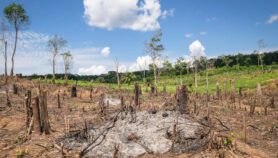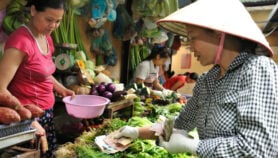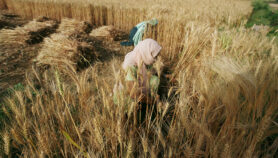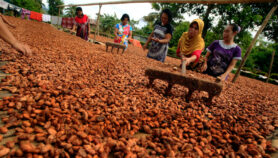04/12/20
UN Green Academies’ lessons for a planet in crisis
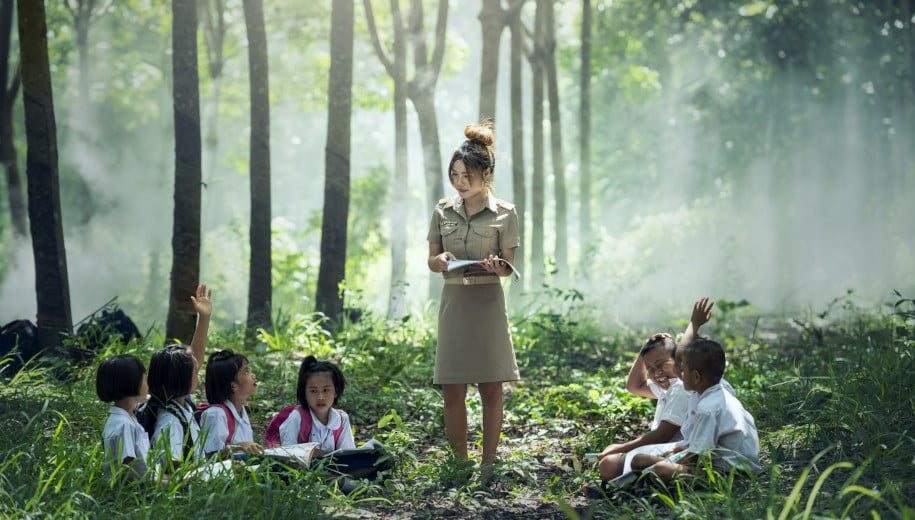
By: Benno Böer and Kuanyi Shen
Send to a friend
The details you provide on this page will not be used to send unsolicited email, and will not be sold to a 3rd party. See privacy policy.
UNESCO Green Academies catch them young to impart lessons in planet management.
Deprived of air for three minutes, water for three days or food for three weeks, most people would perish. Planet Earth’s vibrant ecosystems provide these essentials but are being relentlessly subjected to unsustainable pressures. Unless there is a fundamental shift in mindsets and behaviours, humanity faces an uncertain future.
Almost two-thirds of the impacts related to atmospheric and ocean temperature can be attributed to anthropogenic forces, according to the journal Nature. But humans can also provide solutions through innovation and sustainable development practices.
This is the basis of UNESCO’s Green Academies, which engage young people and their communities to transform existing buildings such as schools and offices into climate-resilient structures.
“Young people did not cause this situation, but inevitably it is their responsibility to protect the planet for a more livable tomorrow”
Benno Böer and Kuanyi Shen, UNESCO
Across the world, 4.2 billion people do not have safely managed sanitation services and three billion lack basic handwashing facilities; 940 million people do not have access to electricity and 821 million do not get enough to eat, according to data from WHO, World Bank and the World Food Programme.
The climate crisis in tandem with population growth has already had major observable effects on the environment, with inevitable consequences for human communities. Glaciers have shrunk, species’ ranges have shifted and reduced, and plants and trees are flowering sooner, disturbing interdependent ecosystems. Meanwhile, the careless waste of tremendous amounts of water, electricity and food are the hallmark of most people’s consumption patterns.
Young people did not cause this situation, but inevitably it is their responsibility to protect the planet for a more livable tomorrow. If 1.5 billion school children around the world integrate conservation into their thinking and actions, and three million schools are transformed into green buidlings, the seeds for sustainable change are planted. Student awareness and behaviour can have a multiplier effect on friends, parents and communities.
UNESCO Green Academies are designed to convey ideas about environmental protection to students at an early age, empower them to create a world they want to inherit and propose practical, replicable and affordable changes to buildings to address imbalances and contribute to more sustainable ways of life.
The initiative focuses on water security, clean energy, biomass production and waste management, involving youth clubs. The academies can improve sanitation and access to drinking water. Locally generated energy from biogas, biomass, wind, solar, hydropower and other renewable energy can replace polluting centralised sources. Campuses can produce their own food, fodder, biofuel and reduce, reuse and recycle to reshape waste management.
Through youth clubs, students can become the custodians of Green Academies in which they learn how facilities function and how they are maintained. Another objective is to foster students’ understanding of environmental issues such as loss of biodiversity, differences in temperatures and sea levels, deterioration of ecosystems, increasing extreme weather events and changing climate patterns.
Based on this methodology and a local gap performance analysis, in April 2016 UNESCO partnered with the local community to transform Beza Bezuhan Academy, in Ethiopia’s Lake Tana Biosphere Reserve, into the first Green Academy. A rainwater harvesting system was installed to collect rainwater and divert it to the school’s new organic vegetable garden. A reed-bed wastewater treatment compartment based on indigenous grasses such as papyrus and elephant grass was constructed to purify greywater, with the water reused for the school garden and toilet flush. Solar panels produce stable energy supply even during power cuts, while a bio-gas plant was connected to school toilets to generate bioenergy.
The model can be implemented in schools across the world and tailored to local contexts. It can also be done in steps like starting with a youth club (no costs), establishing a rain-water device (limited costs) and establish a productive school garden (plenty of work, but limited costs).

In Thailand, Sukhothai Thammathirat Open University is working to qualify for the UI GreenMetric World University ‘green’ qualification based on the six indicators of infrastructure, energy, water, waste, transport and education. Since 2017, the university has been operating a new building covered in vegetation, with the roof used for an on-grid solar system and rainwater collection pipes.
Looking to the future, UNESCO Bangkok is collaborating with partners, including international organisations such as UN Habitat and SEAMEO, academic institutions such as the Asia Institute of Technology, schools and the private sector, and diverse companies such as the educational provider PAPINEE and major conglomerates such as Saudi ARAMCO, to build more Green Academies in the Asia Pacific.
Environmental degradation is an issue affecting the entire world. Apart from educating future generations through Green Academies, UNESCO has also established an open science platform quest4action.org to promote emerging green economies by augmenting knowledge, networking and necessary skills for science-based environmental management.
There is much more to do if we are to protect the planet. The challenges posed by the climate crisis and environmental degradation are major, but the solutions are within our hands if we choose to implement them.
Kuanyi Shen is a UNESCO Intern and Benno Böer is the former chief of natural sciences and currently the programme specialist in UNESCO Bangkok’s Natural Sciences Unit.
This piece was produced by SciDev.Net’s Asia & Pacific desk.








